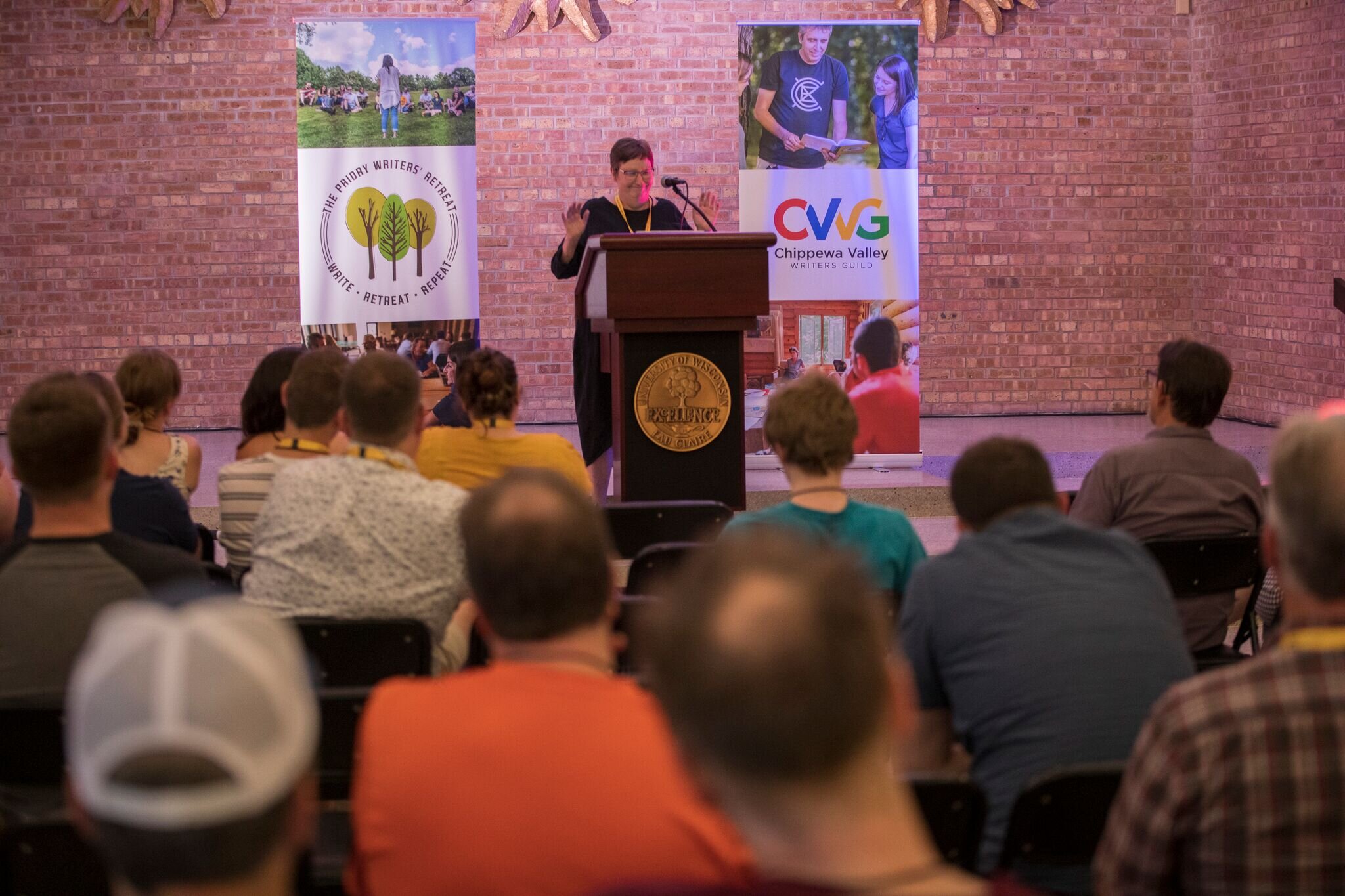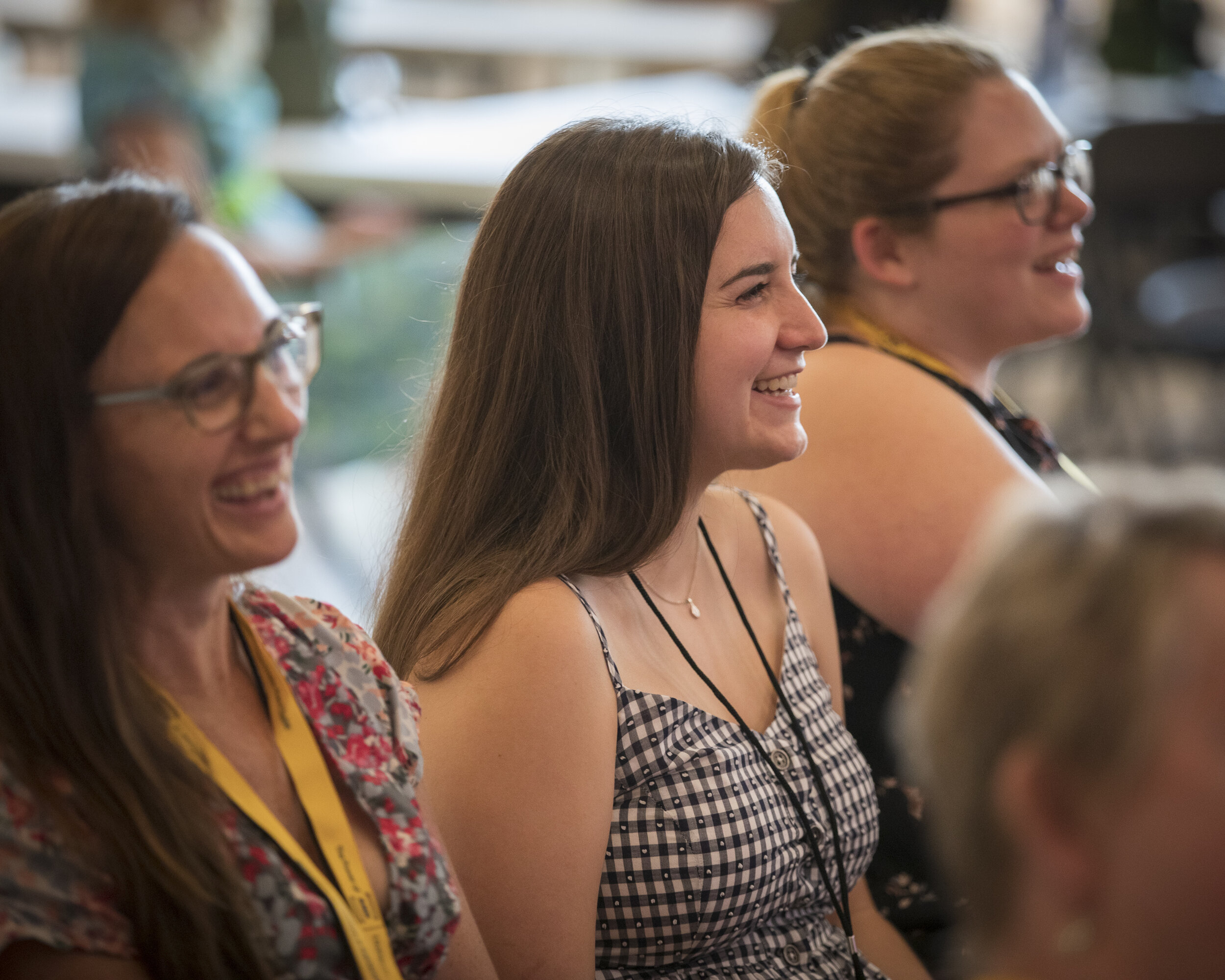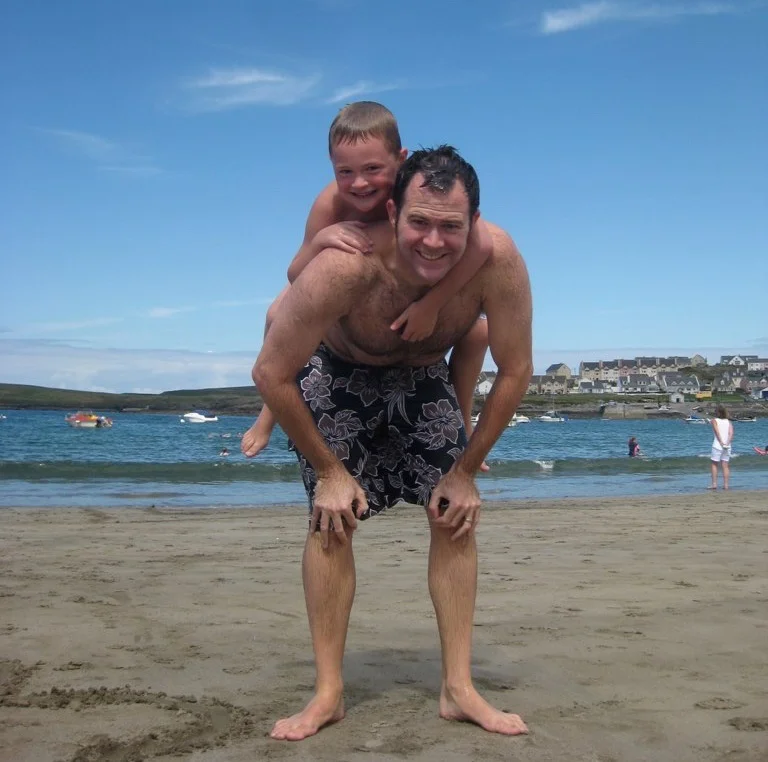credit: Justin Patchin
From June 25-28, 2020, the Chippewa Valley Writers Guild is thrilled to host The Priory Writers’ Retreat for a second year. Retreat dates are June 25-28, 2020.
Originally established as a monastery for Benedictine nuns in 1964, today The Priory serves as an ideal location for creativity to flourish. Situated on 120 wooded acres just miles from downtown Eau Claire, the property features 48 single-occupancy dorm style, air-conditioned rooms, several common areas, and no shortage of natural splendor.
This summer’s course offerings include:

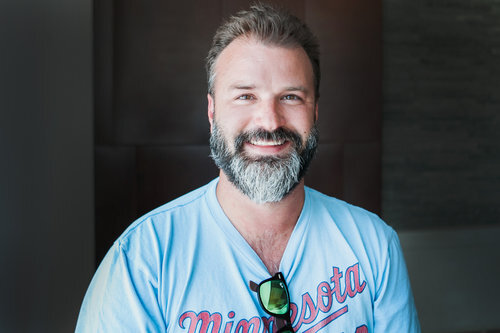
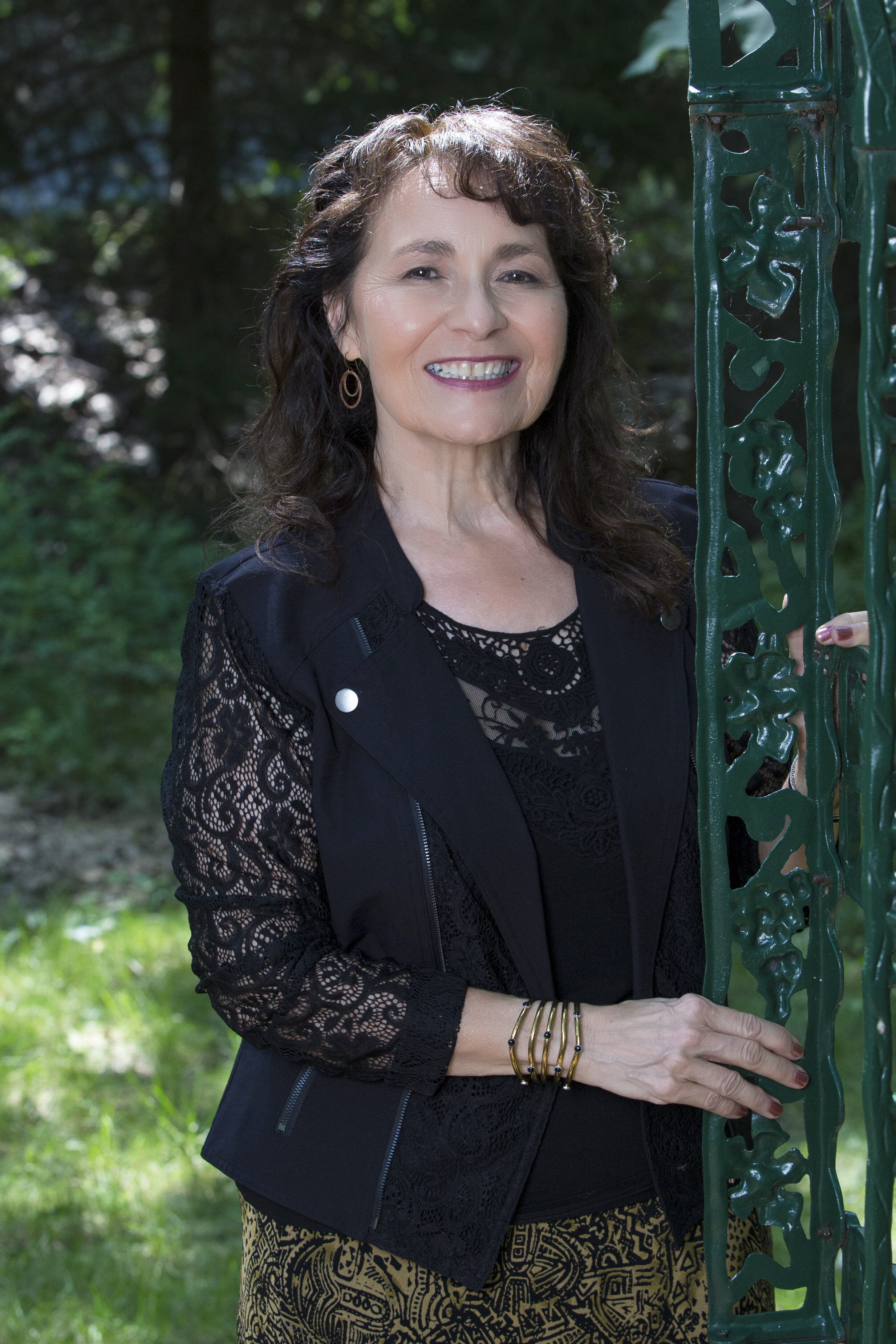
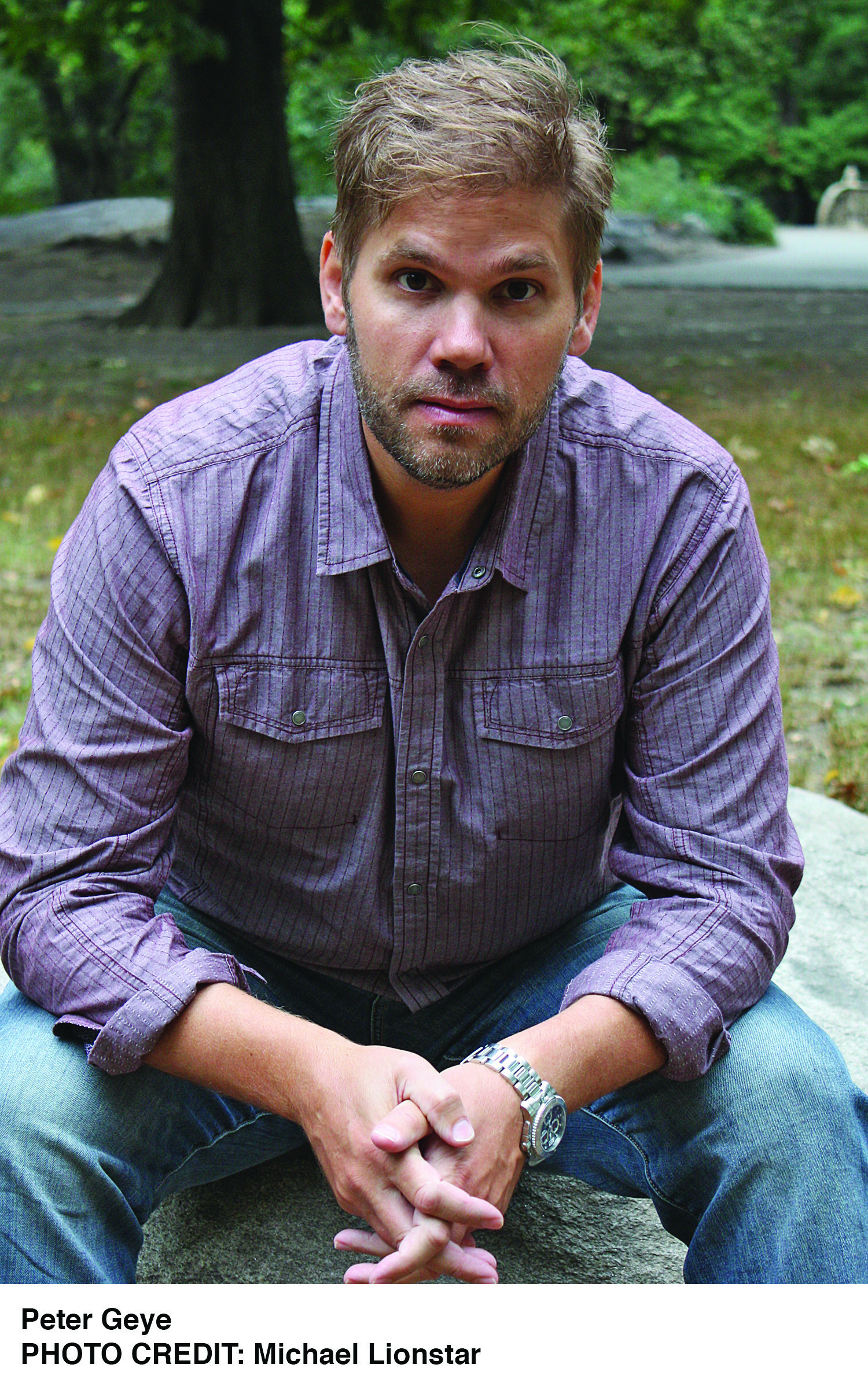
Tessa Fontaine’s “Beauty in Brevity: Finding Power in Flash Creative Nonfiction and Memoir"
Nickolas Butler’s “Great Tales of Action and Adventure (and Horror, too…)”
Peter Geye’s “The First Chapter, the Last Chance: How The Opening Pages of Your Novel Can Make It Or Break It”
“This summer is poised to be our best yet,” said Guild executive director, B.J. Hollars. “We’ve worked hard to bring participants our most unique offerings to date, including courses on flash nonfiction and memoir, action and adventure narratives, and more. We hope there’s something for everyone.”
Hollars also noted that while the daily schedule will mostly remain the same (sustained creative time in the morning, workshopping in the afternoon, and celebratory readings, music and performances in the evening), the retreat will showcase some changes as well. “We’ve overhauled our entire menu,” Hollars said, “and also secured partnerships with SHIFT Cyclery and Coffee Bar and The Brewing Projekt. We want both local and out-of-town writers to enjoy some of Eau Claire’s local offerings.”
Additional sponsors include: the UW-Eau Claire Foundation, Pablo Center at the Confluence, Wisconsin Writers Association, Visit Eau Claire, Wisconsin Arts Board, JAMF Software, and Write On, Door County.
In addition to robust writer-in-residence led workshops, participants will also enjoy craft talks from Nickolas Butler, Kimberly Blaeser, Peter Geye, as well as a keynote address from Tessa Fontaine. On Saturday, June 27, The Priory Celebratory Reading will be held at Pablo Center at the Confluence. Tickets will soon be available to the public.
Priory participant Erin Stevens recently commented on her experience during The Priory’s inaugural summer. “What I love most about The Priory is the opportunity to learn from writers of all genres. While I had signed up for and worked most closely with the essay group last year, it was incredibly beneficial to hear the craft talks from the fiction and poetry writers-in-residence.”
The cost is 480.00. This includes three-nights lodging, on-site meals and drinks, personalized instruction and critique, commemorative mug, craft talks and keynote address, bus transport to and from Pablo Center at the Confluence, complimentary ticket to the Writer-in-Residence Reading, and all other on-site events. For non-lodging participants, spots are available for 380.00. Scholarships are available, including our “Writer Exchange Contest,” which provides a free stay at Write On, Door County’s retreat.
Applications open February 1. To apply, prepare a 500-word writing statement, as well as a writing sample. For prose workshops (Nickolas Butler, Tessa Fontaine and Peter Geye), please submit no more than 10 double-spaced pages of a single piece (excerpts are fine) or multiple short pieces, if preferred. For our poetry workshop (Kimberly Blaeser), please submit 3-5 poems.

